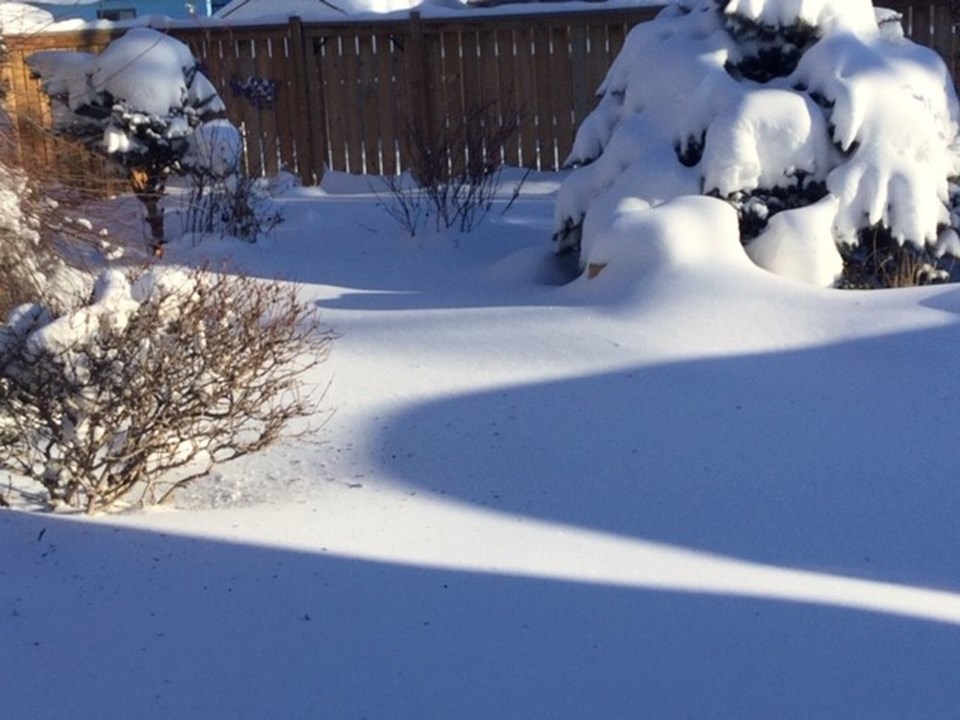YORKTON - It’s almost St. Patrick’s Day, and I wish you the good luck of a four-leaf clover…which might just be hiding under the piles of snow in our yards! I recently watched a session from the U of S on “Low Water, Low Maintenance Gardening” with Sara Williams. It was just wonderful, very informative and interesting. Sara Williams is so knowledgeable, and an absolutely wonderful presenter. She had so much great information to share in her discussion of low water, low maintenance shrubs, trees and perennials.
One thing that she spoke about was the function of lawns. Sara presented some points about why lawns are important: they offer a cool and soft surface that we can relax on, sit on, and the kids can play on. Lawns create a lovely “negative” space that helps to emphasize our gardens and flowerbeds to their best advantage, like a beautiful backdrop.
A lush green lawn is lovely to look at, although the pros and cons of the work, water, and fertilizer involved in getting that golf-green image are not for everyone. However, here is something to think about. If we panic when we see clover in our lawns and think that we have to get rid of it, something that Sara mentioned in her session prompted me to do some homework, and I’ll tell you what I found. Sara said that if clover seed is 5% of our grass seed mixture, it will supply half of the nitrogen needed for a healthy lawn.
So, clover is not something that we should be rushing out to remove from our lawns. Some might consider clover a weed, but grass seed mixes are once again including some clover seed. Why? Clover is able to produce nitrogen from the air, and this helps our lawn be greener and healthier without using as much fertilizer. Clover doesn’t need as much water as grass, because it has hard-working longer roots that will go down into the soil in search of moisture.
Clover does well if we cut it or if we don’t, and it spreads easily even if our soil is poor or compacted. In fact, clover does very well in soil that is lacking nitrogen. It is drought-resistant, helps to loosen very compacted soil, and its blooms will attract pollinators. The only downside that I noted was that clover is not quite as durable as lawn grass in areas that have a lot of traffic.
So, what I took away from the various articles that I read is that clover in our lawns is definitely not a bad thing and is a definite plus in terms of durability,water usage and fertilizer application. And for those of us with established lawns that might need a bit of rejuvenating, maybe spreading some clover seed is a possible and practical idea!
Here’s an interesting factoid: I also read about a poll that said 77% of homeowners use their “lawn” area regularly for relaxing and entertaining, and that having green space around a home was a priority among millennials who were looking to buy or rent a home. Guess what, the green space was ranked as more important than an updated kitchen!
Looking out the window now, our lawns are a far-away dream…but not that far! Only 68 more sleeps till the May long weekend!
Thank you to our friends at YTW who bring us local news in all kinds of weather: thank you for all your efforts! Gardeners, see what’s new with the Yorkton hort society at www.yorktonhort.ca and have a great week and a Happy St. Patrick’s Day! Erin go Bragh!






